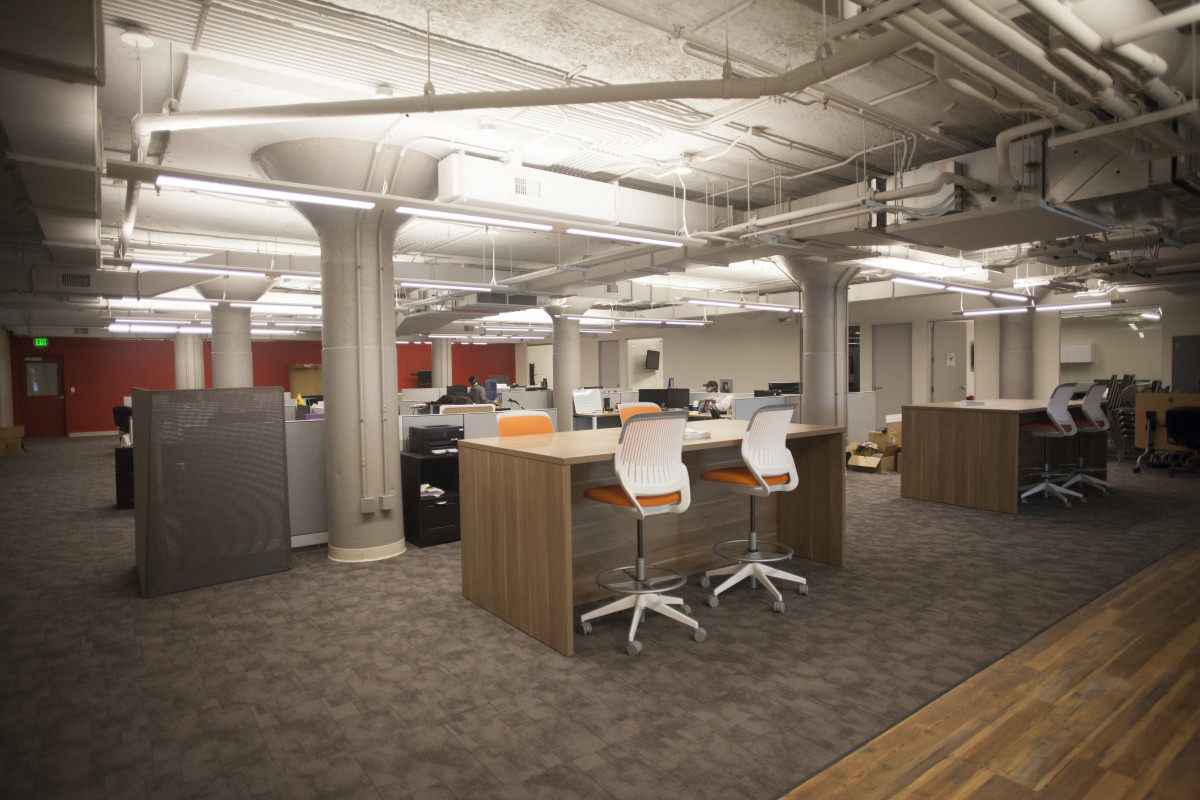The pandemic brought lots of change to work patterns, with Zoom meetings replacing once-buzzing offices as the gathering points for companies. With COVID-19 vaccinations spreading more widely, it’s a time when companies are starting to consider how they’ll operate going forward.
To be sure, there are lessons to learn from the last year, and how a company reports to work and communicate might not look the same as it was.
Just take the plans of Baltimore-based Mindgrub Technologies. Todd Marks, the CEO of the Locust Point-based software agency and marketing consultancy, recently told Technical.ly about the company’s plans to maintain a hub for community in Baltimore, while expanding into other cities, as well.
Against a backdrop of increased tech adoption across the economy, Mindgrub saw growth in 2020, with a 50% increase in employees that brought its team to about 160 full-time employees, Marks said. More than 25 of those employees have been in Baltimore. But with remote work, the team has also been hiring in other cities. The company gained 50 employees in other areas, growing from a previous remote team of five. In doing so, the company added lots of process and programming to boost remote culture, so it is now built to operate remotely.
“We did a lot of things to facilitate having a solid online culture which allowed us to keep growing,” he said.
At the same time, the headquarters in Locust Point remains a key part of the plan for the company. So Mindgrub’s leadership has been keeping close tabs on what its employees think about remote work. While it has been productive, a survey found that 71 out of the company’s 117 employees want to come back to the office in some form of full or part-time capacity.
With employees in other cities and local employees who want to keep working from home, remote work will stay. So where does its physical space fit? It’ll be a hybrid culture going forward, he said.
“We’re shifting from having an office that had a desk for every single employee, to now having a desk for the maximum number of employees that will be at the office on any given day,” Marks said.
The company's coworking space for startups and small businesses, called Mindhub, is opening up to entrepreneurs and remote workers, too.
So the team is rearranging the layout of the office to include about 75 desks that will be available to team members. They won’t be considered permanent desks, but still be equipped for what employees need. And, for now, COVID policies remain in place.
That leaves additional space, which the company is using to make more room for other businesses within its own office. The company’s coworking space for startups and small businesses, called Mindhub, is growing. Mindgrub has hosted Baltimore companies in the space, and is now opening it up for coworking among entrepreneurs and remote workers, too.
At the same time, it is growing a network of offices in other cities. One example is in Charlotte: Chief Business Officer Vincent Sharps relocated to the North Carolina city during the pandemic, and is leading operations in the Southeast. The company also has offices in New York, D.C. and Philly. Along with business opportunities for a company with national clients, Marks sees tech talent in many southeast cities. As the company hires more in those areas, he’s looking to set up offices there.
“Our goal would be if you want to be out of your house and want to be remote you can start in a WeWork or Spaces,” he said, referring to the coworking companies with a national presence. “If you start to get a density of team members in an area, then we’ll start to have physical office space.”
Coming out of the pandemic year, Marks said he is taking away that the processes and functions put in place during the pandemic are the company culture. It put in new payroll and back-office systems, while at the same time standing up a marketplace to streamline how it sends out its Mindgrub-branded gear. And it added virtual-friendly team activities, like Games for Good, as well as three new holidays for rest.
“We really focused on, if we are going to be virtual first and later a hybrid company, we’ve got to get deep in the culture and the things that really matter,” he said, “and that’s a lot of systems improvement.”







